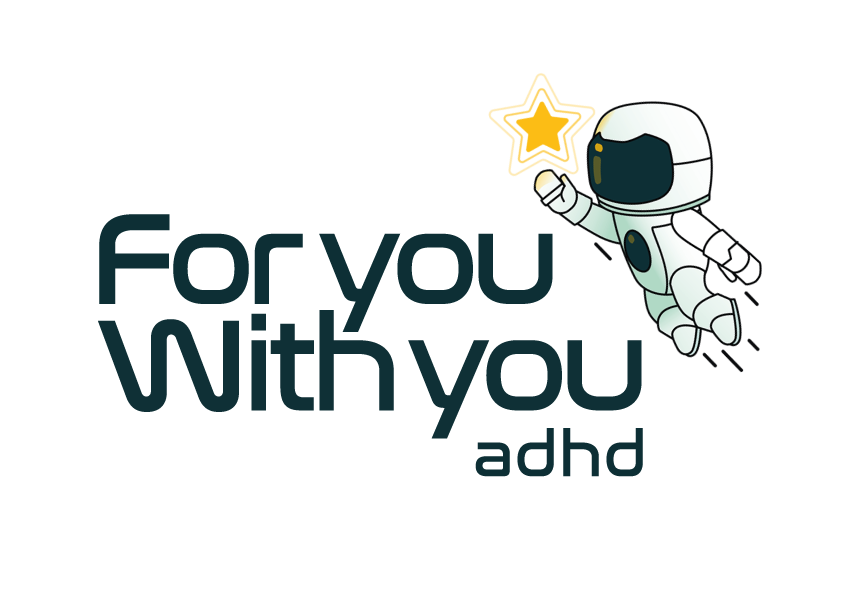Behandling av ADHD med läkemedel
Det finns både läkemededelsbehandling och annan behandling av ADHD. I Sverige finns riktlinjer för läkemedelsbehandling från Läkemedelsverket. Principen är att läkemedelsbehandling vid ADHD hos barn, ungdomar och vuxna ska sättas in när det är motiverat och ska vara individuellt anpassat.


Regelbunden uppföljning
Graden av funktionsnedsättning och behandlingsbehov varierar under hela livslängden för många patienter. Det är viktigt att regelbundet omvärdera den pågående effekten av ADHD.
Godkända läkemedelssubstanser för behandling av ADHD i Sverige
I Sverige finns för närvarande fem godkända läkemedelssubstanser för behandling av ADHD:
- atomoxetin
- metylfenidat
- dexamfetamin
- lisdexamfetamin
- guanfacin
Hur fungerar ADHD-läkemedel i hjärnan?
Läkemedel fungerar inte på samma sätt för alla. Vissa behandlingar kan vara ineffektiva hos vissa personer men inte hos andra. Det verkar som att metylfenidat, amfetamin, atomoxetin och guanfacin har tydliga effekter på signalvägarna för dopamin (DA) och noradrenalin (NA) i hjärnan. Hjärnan har signalsubstanser som transporteras mellan nervceller för att åstadkomma olika effekter. Kroppen strävar efter balans. Ett obalanserat system kan leda till obehag. ADHD kan vara ett tecken på en sådan obalans i hjärnan som kan vara ärftligt.
Dopamin är en viktig signalsubstans och forskarna tror att man har en obalans i dopaminsystemet och noradrenalin vid ADHD. Centralstimulerande läkemedel kan stimulera och öka förekomsten av dopamin och noradrenalin i hjärnan. Noradrenalinsystemet och dopaminsystemet i hjärnan påverkar bland annat arbetsminnet och uppmärksamhetsfunktioner i hjärnan. Läkemedel som påverkar noradrenalinsystemet i hjärnan kan också vara effektivt vid ADHD.
- Volkow ND, Wang GJ, Fowler JS, et al. Dopamine transporter occupancies in the human brain induced by therapeutic doses of oral methylphenidate. Am J Psychiatry 1998; 155: 1325-1331.
- Volkow ND, Wang G, Fowler JS, et al. Therapeutic doses of oral methylphenidate signficantly increase extracellular dopamine in the human brain. J Neurosci 2001; 21: RC121.
- Rosa-Neto P, Lou HC, Cumming P, et al. Methylphenidate-evoked changes in striatal dopamine correlate with inattention and impulsivity in adolescents with attention deficit hyperactivity disorder. Neuroimage 2005; 25: 868-876.
- Hannestad J, Gallezot JD, Planeta-Wilson B, et al. Clinically relevant doses of methylphenidate significantly occupy norepinephrine transporters in humans in vivo. Biol Psychiatry 2010; 68: 854-860.
- Volkow ND, Wang GJ, Tomasi D, et al. Methylphenidate-elicited dopamine increases in ventral striatum are associated with long-term symptom improvement in adults with attention deficit hyperactivity disorder. J Neurosci 2012; 32: 841-849.
- Cherkasova MV, Faridi N, Casey KF, et al. Amphetamine-induced dopamine release and neurocognitive function in treatment-naive adults with ADHD. Neuropsychopharmacology 2014; 39: 1498-1507.
- Crunelle CL, van den Brink W, Dom G, et al. Dopamine transporter occupancy by methylphenidate and impulsivity in adult ADHD. Br J Psychiatry 2014; 204: 486-487.
- Schrantee A, Tamminga HG, Bouziane C, et al. Age-dependent effects of methylphenidate on the human dopaminergic system in young vs adult patients with attention-deficit/hyperactivity disorder: a randomized clinical trial. JAMA Psychiatry 2016; 73: 955-962.
- Silberstein RB, Levy F, Pipingas A, et al. First-dose methylphenidate-induced changes in brain functional connectivity are correlated with 3-month attention-deficit/hyperactivity disorder symptom response. Biol Psychiatry 2017; 82: 679-686.
- Liang NY, Rutledge CO. Comparison of the release of [3H]dopamine from isolated corpus striatum by amphetamine, fenfluramine and unlabelled dopamine. Biochem Pharmacol 1982; 31: 983-992.
- Bymaster FP, Katner JS, Nelson DL, et al. Atomoxetine increases extracellular levels of norepinephrine and dopamine in prefrontal cortex of rat: a potential mechanism for efficacy in attention deficit / hyperactivity disorder. Neuropsychopharmacology 2002; 27: 699-711.
- Kahlig KM, Binda F, Khoshbouei H, et al. Amphetamine induces dopamine efflux through a dopamine transporter channel. Proc Natl Acad Sci U S A 2005; 102: 3495-3500.
- Berridge CW, Devilbiss DM, Andrzejewski ME, et al. Methylphenidate preferentially increases catecholamine neurotransmission within the prefrontal cortex at low doses that enhance cognitive function. Biol Psychiatry 2006; 60: 1111-1120.
- Wang M, Ramos BP, Paspalas CD, et al. Alpha2A-adrenoceptors strengthen working memory networks by inhibiting cAMP-HCN channel signaling in prefrontal cortex. Cell 2007; 129: 397-410.
- Somkuwar SS, Kantak KM, Dwoskin LP. Effect of methylphenidate treatment during adolescence on norepinephrine transporter function in orbitofrontal cortex in a rat model of attention deficit hyperactivity disorder. J Neurosci Methods 2015; 252: 55-63.
- Heal DJ, Cheetham SC, Smith SL. The neuropharmacology of ADHD drugs in vivo: insights on efficacy and safety. Neuropharmacology 2009; 57: 608-618.
- Schiffer WK, Volkow ND, Fowler JS, et al. Therapeutic doses of amphetamine or methylphenidate differentially increase synaptic and extracellular dopamine. Synapse 2006; 59: 243-251.
- Floor E, Meng L. Amphetamine releases dopamine from synaptic vesicles by dual mechanisms. Neurosci Lett 1996; 215: 53-56.
Allt är inte bara läkemedel
Det finns flera andra behandlingar som kan ges ensamt eller i kombination med läkemedel för ADHD.

Kognitiv beteendeterapi (KBT)
KBT består av självinstruktionsträning som ges individuellt eller i grupp. Regelbundna behandlingar med KBT har visat sig minska ADHD-symtom. KBT kan hjälpa till att utveckla en persons tänkande i förhållande till beteende och känslor.
Psykoedukation
Psykoedukation kan vara till exempel utbildning om ADHD till dels både de som har fått diagnosen men också till deras anhöriga. Utbildningen är till för att förstå vilka utmaningar och möjligheter det finns med ADHD.
Neurofeedback
Neurofeedback är datorbaserade övningar då hjärnaktivitet mäts med elektroencefalogram (EEC) medan du utför en uppgift, vanligtvis ett datorspel. Du får poäng när hjärnaktiviteten visar positiva förändringar.
Kost och motion
Det finns inte så mycket forskning om hur kost och motion kan påverka ADHD-symtom. En svensk studie har visat att en välbalanserad kost kan underlätta livet med ADHD. Många som har ADHD säger att träning kan påverka deras ADHD-symtom på ett bra sätt.
- Daley D, van der Oord S, Ferrin M, et al. Behavioral interventions in attention-deficit/hyperactivity disorder: a meta-analysis of randomized controlled trials across multiple outcome domains. J Am Acad Child Adolesc Psychiatry 2014; 53: 835-847.
- Steiner NJ, Frenette EC, Rene KM, et al. In-school neurofeedback training for ADHD: sustained improvements from a randomized control trial. Pediatrics 2014; 133: 483-492.
- Meisel V, Servera M, Garcia-Banda G, et al. Neurofeedback and standard pharmacological intervention in ADHD: a randomized controlled trial with six-month follow-up. Biol Psychol 2013; 94: 12-21.
- Sonuga-Barke EJ, Brandeis D, Cortese S, et al. Nonpharmacological interventions for ADHD: systematic review and meta-analyses of randomized controlled trials of dietary and psychological treatments. Am J Psychiatry 2013; 170: 275-289.
- Cairncross M, Miller CJ. The effectiveness of mindfulness-based therapies for ADHD: a meta-analytic review. J Atten Disord 2016; Epub ahead of print.
- Prevatt F, Yelland S. An empirical evaluation of ADHD coaching in college students. J Atten Disord 2015; 19: 666-677.
- Vidal R, Castells J, Richarte V, et al. Group therapy for adolescents with attention-deficit/hyperactivity disorder: a randomized controlled trial. J Am Acad Child Adolesc Psychiatry 2015; 54: 275-282.
- Pettersson R, Söderström S, Edlund-Söderström K, et al. Internet-based cognitive behavioral therapy for adults with ADHD in outpatient psychiatric care: a randomized trial. J Atten Disord 2017; 21: 508-521.
- Safren SA, Sprich S, Mimiaga MJ, et al. Cognitive behavioral therapy vs relaxation with educational support for medication-treated adults with ADHD and persistent symptoms: a randomized controlled trial. JAMA 2010; 304: 875-880.
- Virta M, Vedenpaa A, Gronroos N, et al. Adults with ADHD benefit from cognitive-behaviorally oriented group rehabilitation: a study of 29 participants. J Atten Disord 2008; 12: 218-226.
- Solanto MV, Marks DJ, Mitchell KJ, et al. Development of a new psychosocial treatment for adult ADHD. J Atten Disord 2008; 11: 728-736.
- Solanto MV, Marks DJ, Wasserstein J, et al. Efficacy of meta-cognitive therapy for adult ADHD. Am J Psychiatry 2010; 167: 958-968.
- Knouse LE, Teller J, Brooks MA. Meta-analysis of cognitive-behavioral treatments for adult ADHD. Journal of consulting and clinical psychology 2017; 85: 737-750.
- Fehlings DL. Attention deficit hyperactivity disorder: does cognitive behavioral therapy improve home behavior? J Dev Behav Pediatr 1991; 12: 223-228.
- Hoekzema E, Carmona S, Tremols V, et al. Enhanced neural activity in frontal and cerebellar circuits after cognitive training in children with attention-deficit/hyperactivity disorder. Hum Brain Mapp 2010; 31: 1942-1950.
- Hoekzema E, Carmona S, Ramos-Quiroga JA, et al. Training-induced neuroanatomical plasticity in ADHD: a tensor-based morphometric study. Hum Brain Mapp 2011; 32: 1741-1749.
- Montoya A, Colom F, Ferrin M. Is psychoeducation for parents and teachers of children and adolescents with ADHD efficacious? A systematic literature review. Eur Psychiatry 2011; 26: 166-175.
- Ferrin M, Taylor E. Child and caregiver issues in the treatment of attention deficit-hyperactivity disorder: education, adherence and treatment choice. Future Neurol 2011; 6: 399-413.
- Ferrin M, Moreno-Granados JM, Salcedo-Marin MD, et al. Evaluation of a psychoeducation programme for parents of children and adolescents with ADHD: immediate and long-term effects using a blind randomized controlled trial. Eur Child Adolesc Psychiatry 2014; 23: 637-647.
- Ferrin M, Perez-Ayala V, El-Abd S, et al. A randomized controlled trial evaluating the efficacy of a psychoeducation program for families of children and adolescents with ADHD in the United Kingdom: results after a 6-month follow-up. J Atten Disord 2016; Epub ahead of print.
- Bink M, van Nieuwenhuizen C, Popma A, et al. Behavioral effects of neurofeedback in adolescents with ADHD: a randomized controlled trial. Eur Child Adolesc Psychiatry 2015; 24: 1035-1048.
Samsjuklighet
En svensk studie upptäckte att nästan hälften av vuxna personer som nyligen fått ADHD-diagnos hade någon form av samsjuklighet.